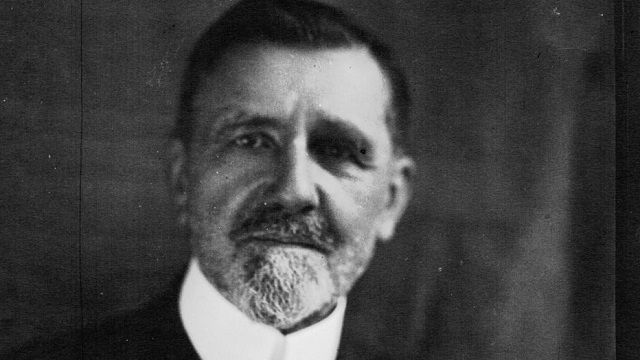He is known for his contributions to probability theory in mathematics: Who is Emile Borel?
His father was the town pastor. Quickly proving his giftedness, his parents sent him to high school. His wife, whom he married in 1901, has about thirty novels published under the pseudonym Camille Marbo.

(1871-1956) French mathematician. He is best known for his contributions to analysis and probability theory. Felix Edouard Justin Emile Borel was born on January 7, 1871, in Saint-Affrique, near Aveyron. His father was the town pastor. Quickly proving his giftedness, his parents sent him to high school in the neighboring city of Montauban. While preparing for the university exams in Paris, he became friends with the son of the famous mathematician Darboux. Then, under the influence of Darboux, he decided to become a mathematician. Two of his works were published in his first year at the Ecole Normale Superiore, where he won first place in 1889. After graduating first in 1893, he accepted offers to teach at the University of Lille. Here, in the three years, he wrote his doctoral thesis, 22 articles were published. Returning to Ecole Normale again in 1896, Borel's interest covered a wide range of thought, from the abstract structure of theoretical mathematics to its applications, social issues, and politics. His wife, whom he married in 1901, has about thirty novels published under the pseudonym Camille Marbo.
Félix Édouard Justin Émile Borel (7 January 1871 – 3 February 1956) was a French mathematician and politician. As a mathematician, he was known for his founding work in the areas of measure theory and probability.
Borel was appointed Head of the Function Theory Chair at the Sorbonne in 1909. Between 1924 and 1936, he held various political positions, including mayor and minister of his native town. He returned to the Sorbonne in 1940 and published about fifty more books and articles until his death. After being imprisoned for a short time by the Vichy government during World War II, he joined the resistance movement of his native city. In 1955 he was awarded the first gold medal of the Center National de la Recherche Scientifique (National Center for Scientific Research). He died on February 3, 1956, in Paris.
Borel's most important contributions to mathematics were in the fields of analysis and probability. He dealt with the problems he was interested in with a working method peculiar to 19th-century mathematicians, avoiding unnecessary generalizations, formalism, and intuitionism. Starting from his early studies, he focused his attention on Cantor's studies of sets, measurement theory, divergent series, and countability. In his doctoral thesis, he proved two important theorems, one known as the Heine-Borel theorem and the other showing that the measure of a countable set is zero.
Borel then dealt with the metric properties of point sets, the development of probability theory, and the proof of a special case of the rule of large numbers. He gave an elementary proof of Picard's theorem. As he laid the foundations of game theory, he also made the first definition of strategy games himself. He proved the "min-max" theory for three players.
In his productive scientific life, Borel has written more than three hundred articles as well as many books and has pioneered the development of effective theories of point sets and real-valued variable functions.
